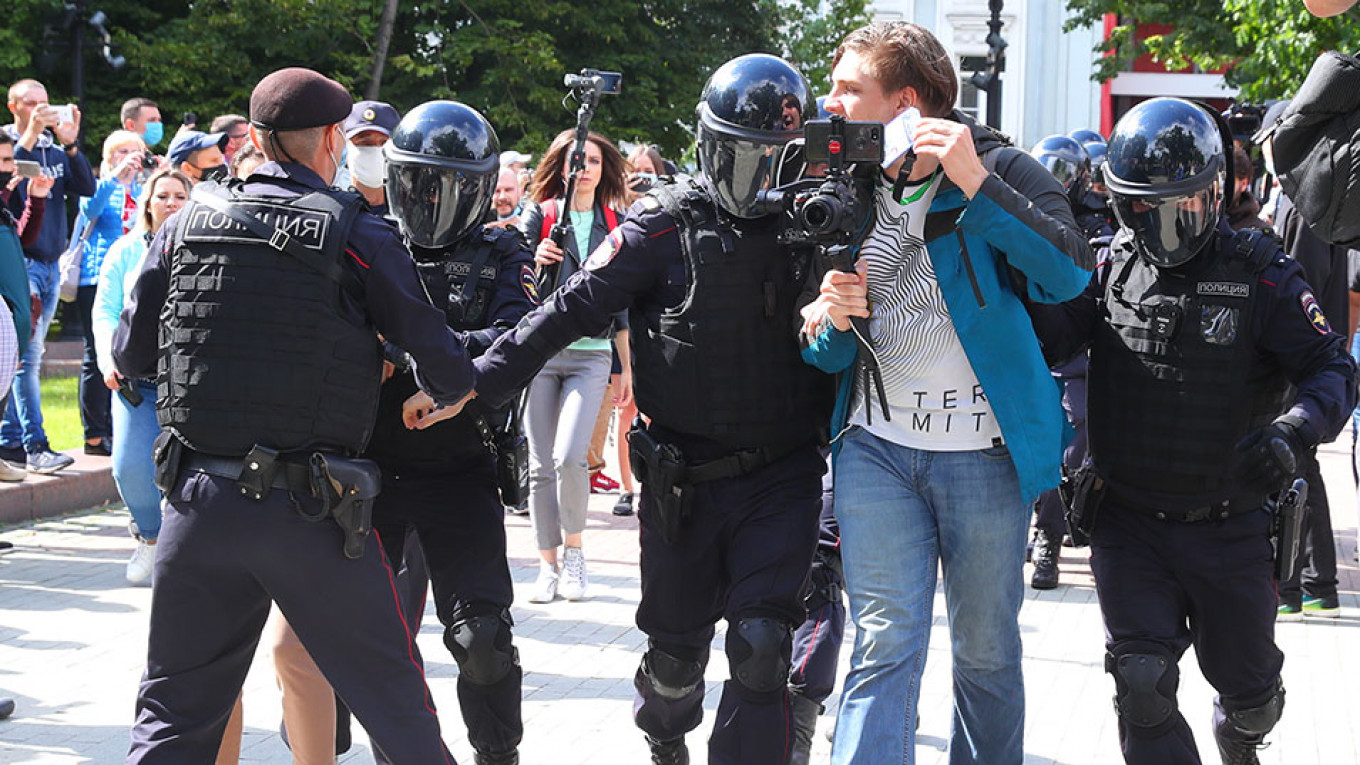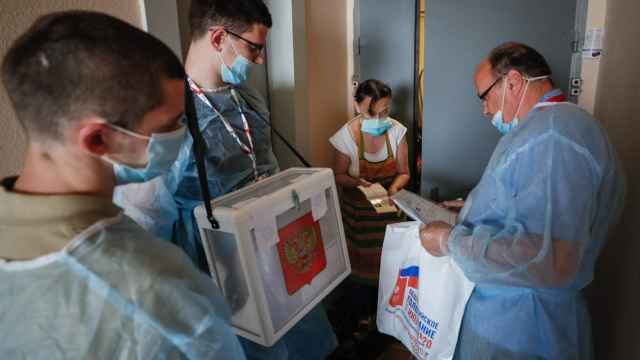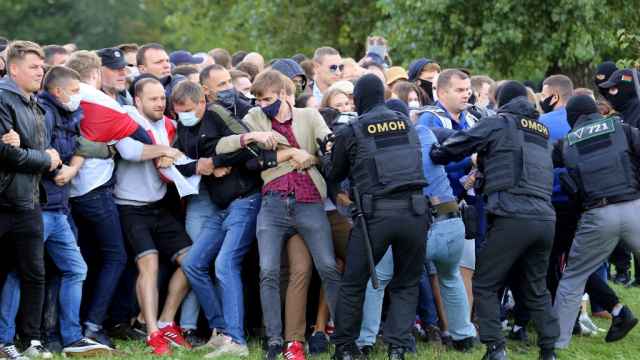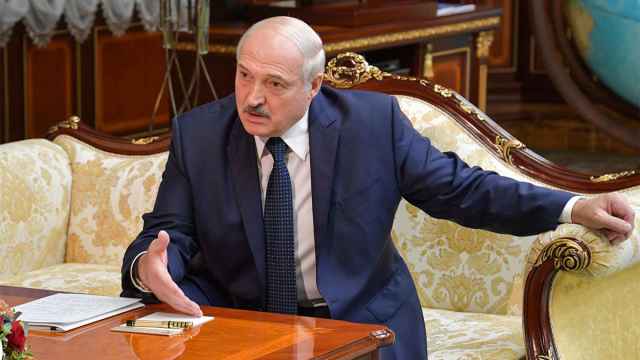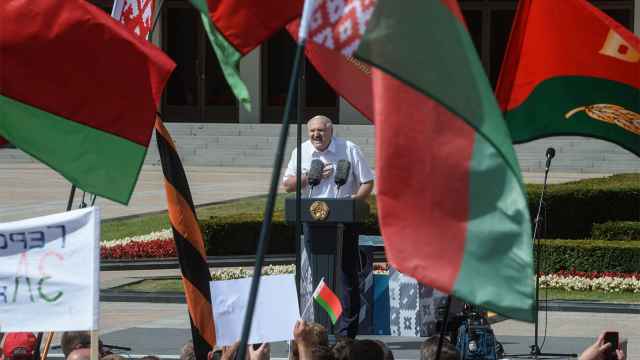What do former Khabarovsk region Governor Sergei Furgal and Belarusian President Alexander Lukashenko have in common? To be sure, both have reputations as flawed individuals.
The difference, however, is that Furgal was voted into office by the people. Lukashenko was not. In both cases, the people — who now see themselves not as the vassals of unjust authority, but as citizens with rights — felt that their choice for officeholder had been stolen from them. That is why protesters in Khabarovsk and Belarus felt mutual solidarity. Their comradery was born of the fact that the civil society of both countries faced increasingly aggressive crackdowns by authoritarian regimes that had lost all pretense of civility.
The generality of Russians, who are usually wary of protests staged by the more advanced and educated residents of Moscow and St. Petersburg, felt a greater kinship with demonstrators in Khabarovsk.
In the eyes of average Russians — even those addicted to the mind-numbing drug of state-sponsored television propaganda — these were simply citizens like themselves whom the authorities had treated unfairly. And because the rallies took place far from Moscow, few believed that they were instigated by U.S. agents or supporters of opposition leader Alexei Navalny.
If anything, this gave the protests even greater appeal. As of Oct. 2020, according to the independent Levada Center, 47% of Russians expressed sympathy for the actions in Khabarovsk. By October, however, after the public’s attention had dissipated somewhat, that number had fallen to 43%.
Interestingly, the Levada Center found that only 18% of Russians expressed the same support for protestors in “fraternal” Belarus, while 43% sided with Lukashenko.
Apparently, most Russians were still in thrall to the myth that order, cleanliness and justice reign in Belarus — thanks to Lukashenko. Russians who receive most of their information from state-controlled TV showed even less support for the Belarusian protesters, while those who primarily get their news on the Internet and social networks expressed greater support.
In short, relatively uninformed Russians fed by state propaganda saw a big difference between the protests in Khabarovsk and Belarus and failed to recognize that both groups were simply demanding that the authorities respect the will of the voters.
The Russian authorities monitored events in Khabarovsk closely. They understood intuitively that they could not crack down as severely on the ordinary citizens who took to the streets there as they did with the more “sophisticated hipsters” who fueled protests in Moscow. And even when the demonstrations quickly turned into strident anti-Putin rallies, the Kremlin waited.
Only in the fall of 2020 did the authorities begin to apply repressive measures directly, albeit without the same harshness they reserved for uppity college-types in the capital.
The Kremlin felt mystified by the Khabarovsk protests and treated them with great caution, just as it did the protracted protest against the government’s plans to build an enormous landfill in the remote town of Shies — an initiative that Moscow scrapped quietly and without publicity, in response to the civil society demand.
The Kremlin’s tactic of waiting out the Khabarovsk protesters has proven itself, at least for now.
Leaders realize that no protest can last forever. Meanwhile, they have continued their case against Furgal, even as the number of protesters in the remote far eastern region continues to dwindle. What’s more, the Moscow opposition has switched its attention to something far more compelling: Navalny’s poisoning.
Both the Russian authorities and the civil society have followed the Belarusian protests with heightened interest, anticipating that the same thing could happen here during the presidential elections in 2024.
ut this theory got tested, at least indirectly, when Navalny — the main opponent of Putin and his regime — returned to Russia in January.
The Belarusian authorities took a tough and uncompromisingly repressive approach to the massive but peaceful protests in that country. The Russian authorities were just as recklessly harsh in suppressing protests in support of Navalny. Following acts of physical repression and arrests, they destroyed the opposition’s infrastructure and employed authoritarian legislation to liquidate numerous organizations of civil society and independent media outlets. They also placed the country’s electoral process under even tighter control than before.
The Russian authorities were not simply copying the behavior of their Belarusian counterparts: even without that inspiring example, greater repression was inevitable here because Putin’s regime has entered the stage of mature authoritarianism. Navalny’s poisoning only accelerated the transition to this more repressive phase.
The Belarusian example was important for another reason: it reinforced the Kremlin’s belief that it could only hold onto power through force. The time for subtle political games and negotiation has ended. Now starts an era in which the authorities commit fully to the use of harsh and uncompromising repression.
Political scientist Tatiana Vorozheikina refers to the situation in Venezuela and Belarus as “the new resilience of authoritarian regimes.”
After all, by all canons of historical and political science, these regimes should have fallen by now — and yet, they have survived. The same is true in Russia where, with white knuckles, the ruling elite cling desperately to power — meaning, to Putin — and will not give up either voluntarily. They are willing to use repression to achieve this, confident that the army, siloviki, intelligence agencies and the huge proportion of the population employed by the state or dependent on the state will remain loyal to their leaders.
Nevertheless, the protest movement will never disappear. It will go underground, like a subterranean fire. Nobody can predict where and when it will burst through to the surface, just as no one could have predicted the mass protests in Khabarovsk and Belarus.
A Message from The Moscow Times:
Dear readers,
We are facing unprecedented challenges. Russia's Prosecutor General's Office has designated The Moscow Times as an "undesirable" organization, criminalizing our work and putting our staff at risk of prosecution. This follows our earlier unjust labeling as a "foreign agent."
These actions are direct attempts to silence independent journalism in Russia. The authorities claim our work "discredits the decisions of the Russian leadership." We see things differently: we strive to provide accurate, unbiased reporting on Russia.
We, the journalists of The Moscow Times, refuse to be silenced. But to continue our work, we need your help.
Your support, no matter how small, makes a world of difference. If you can, please support us monthly starting from just $2. It's quick to set up, and every contribution makes a significant impact.
By supporting The Moscow Times, you're defending open, independent journalism in the face of repression. Thank you for standing with us.
Remind me later.



